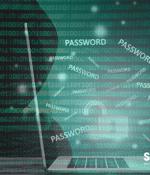Security News

Signal has had the ability to manually authenticate another account for years. The feature is called Contact Key Verification, and it does just what its name says: it lets you add a manual verification step in an iMessage conversation to confirm that the other person is who their device says they are.

Researchers from security firm GitGuardian this week reported finding almost 4,000 unique secrets stashed inside a total of 450,000 projects submitted to PyPI, the official code repository for the Python programming language. Nearly 3,000 projects contained at least one unique secret.

Apple made passkeys automatic in its latest iOS releases, Microsoft expanded passkey use in Windows 11, and Google has enabled them in Chrome and Android devices, which has extended them to services such as DocuSign and PayPal. In October 2023, Google started offering passkeys as the default method for users signing into their accounts.

Entering a password manually without any form of additional authentication was the most commonly used authentication method across the use cases tracked - including accessing work computers and accounts, streaming services, social media, and smart home devices. "This year's Barometer data showed promising signs of shifting consumer attitudes and desire to use stronger authentication methods, with biometrics especially proving popular. That said, high password usage without 2FA worryingly reflects how little consumers are still being offered alternatives like biometrics, resulting in lingering usage," commented Andrew Shikiar, Executive Director and CMO of the FIDO Alliance.

Microsoft has announced that it plans to eliminate NT LAN Manager (NTLM) in Windows 11 in the future, as it pivots to alternative methods for authentication and bolster security. "The focus is on...

Microsoft announced earlier this week that the NTLM authentication protocol will be killed off in Windows 11 in the future. [...]

If a user's password is found on the breached password list, they should be prompted to change it immediately. The same breached password list can also be used to block users from selecting compromised passwords in the first place.

"Despite this recognized vulnerability, enterprises continue to deploy archaic strategies that fail to eliminate authentication mechanisms as a threat vector. The much-hyped passwordless future is not on the horizon anytime soon for most organizations, so it's vital to adopt modern and robust password policies that don't add friction for users." Only 12% of companies rely on passwordless strategies, with 68% primarily utilizing usernames and passwords for authentication.

It's described as an authentication bypass flaw in the Cisco BroadWorks Application Delivery Platform and Cisco BroadWorks Xtended Services Platform. "If that account is an Administrator account, the attacker would have the ability to view confidential information, modify customer settings, or modify settings for other users. To exploit this vulnerability, the attacker would need a valid user ID that is associated with an affected Cisco BroadWorks system."

A critical vulnerability impacting the Cisco BroadWorks Application Delivery Platform and Cisco BroadWorks Xtended Services Platform could allow remote attackers to forge credentials and bypass authentication. Cisco BroadWorks is a cloud communication services platform for businesses and consumers, while the two mentioned components are used for app management and integration.